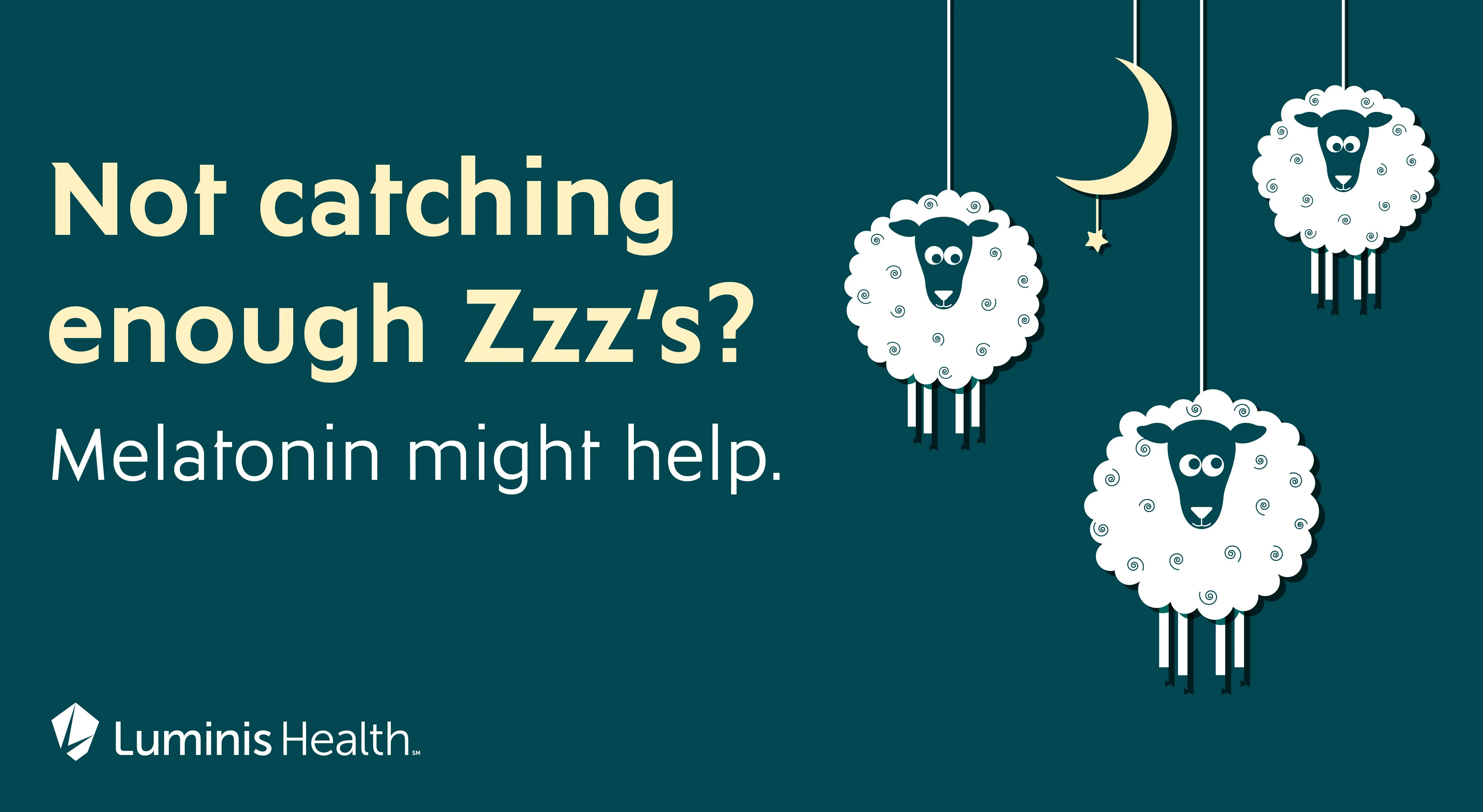It doesn’t matter if it’s insomnia or several late nights and early mornings. If you’re not getting enough sleep, you may be looking for help to catch those Zzz’s. For better slumber, many people turn to melatonin supplements.
The average adult needs seven hours of nightly sleep. If you’re getting less, you’re not alone. Nearly 50 percent of U.S. adults aren’t sleeping enough. The problem worsens with age because your body produces less melatonin—the hormone that controls your sleep-wake cycle.
So, if you’re struggling to sleep, a melatonin supplement may help you fall asleep faster and stay asleep longer. Before you take a tablet or chew a gummy, here’s what you should know.
How much melatonin is safe?
Melatonin supplements are generally safe for most children and adults, and studies suggest they may help improve sleep time. Still, it’s best to talk with your doctor before starting them. Supplements may interfere with medications like blood thinners or birth control. They can also worsen health conditions like diabetes and high blood pressure. If your doctor approves, the key is starting with a small dose.
According to the Sleep Foundation, these doses are safe for children with insomnia:
- Preschool (ages 2 to 5): 1 to 2 milligrams (mg)
- School age (ages 6 to 12): 1 to 3 mg
- Adolescents (over age 13): 1 to 5 mg
Adults should start with .5 to 1 mg nightly for a week. Take it between 30 and 60 minutes before bedtime. Timing is key. Taking a supplement at the wrong time can confuse your body and worsen insomnia. If you aren’t sleeping better within several days, increase your dose by one mg per week. Don’t take more than ten mg.
Like children, older adults should consult their doctor. Lower doses can be safe but should be used with caution. Some people experience daytime sleepiness or dizziness. Those side effects increase the risk of falling. Studies from Nature of Science and Sleep focused on older adults with dementia show melatonin supplements decrease nighttime restlessness. But they can also increase depression symptoms.
Can you take melatonin daily?
Yes, taking supplements nightly is safe. But the Sleep Foundation recommends restricting yourself to short-term use. Daily use for one to two months is best. After that, it’s a good idea to take a break for a few weeks.
Long-term daily use isn’t necessarily harmful. But you can become dependent on the supplements to fall asleep. Plus, they may become less effective.
Choosing a reliable melatonin supplement
Alongside tablets and gummies, some lotions, teas and bath products contain melatonin. When choosing a melatonin source, remember the Food and Drug Administration doesn’t regulate them.
Still, you can determine if the product you’re using is safe and effective. Show your doctor or check the label for third-party verification. Look for certification from either of these groups:
- NSF International: This global public health testing organization ensures products are tested for contaminants. It also verifies that each product’s ingredients match what’s printed on the label.
- U.S. Pharmacopeia: This non-profit group evaluates supplements for dose accuracy, purity and quality.
Supplement alternatives
If melatonin supplements don’t work for you, don’t worry. Consider these alternative supplements:
- Lavender: Research shows inhaling lavender scents promotes relaxation, reduces anxiety and stimulates your parasympathetic nervous system. This system helps regulate your blood pressure and heart rate, helping you sleep better for longer.
- Magnesium: This mineral promotes better sleep by supporting your nervous system and increasing your sense of calm.
- Zinc: This mineral regulates your sleep neurotransmitters like serotonin and affects the receptors in your brain that regulate sleep and wakefulness.
If you prefer a non-supplement alternative, try these sleep-promoting activities:
- Acupuncture: A technique that uses small needles placed along specific points of your body to manage sleep disruptions like sleep apnea or insomnia.
- Mindful meditation: Quiet focus that can reduce stress, promote relaxation and improve your sleep.
- Yoga: Physical activity which blends breathing exercises and specific postures to reduce anxiety and stress, promoting relaxation and better sleep.
A good night’s sleep supports your overall health. Melatonin supplements can help you get the rest you need. Check with your doctor to see if it’s right for you.
If you have questions about the benefits and risks of melatonin supplements, contact your primary care provider.





